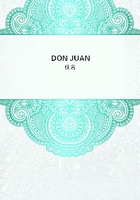
第84章
How eager all the earth is for the blow Which shall lay bare her bosom to the sword;
How all the nations deem her their worst foe, That worse than worst of foes, the once adored False friend, who held out freedom to mankind, And now would chain them, to the very mind:-Would she be proud, or boast herself the free, Who is but first of slaves? The nations are In prison,- but the gaoler, what is he?
No less a victim to the bolt and bar.
Is the poor privilege to turn the key Upon the captive, freedom? He 's as far From the enjoyment of the earth and air Who watches o'er the chain, as they who wear.
Don Juan now saw Albion's earliest beauties, Thy cliffs, dear Dover! harbour, and hotel;
Thy custom-house, with all its delicate duties;
Thy waiters running mucks at every bell;
Thy packets, all whose passengers are booties To those who upon land or water dwell;
And last, not least, to strangers uninstructed, Thy long, long bills, whence nothing is deducted.
Juan, though careless, young, and magnifique, And rich in rubles, diamonds, cash, and credit, Who did not limit much his bills per week, Yet stared at this a little, though he paid it (His Maggior Duomo, a smart, subtle Greek, Before him summ'd the awful scroll and read it);
But doubtless as the air, though seldom sunny, Is free, the respiration's worth the money.
On with the horses! Off to Canterbury!
Tramp, tramp o'er pebble, and splash, splash through puddle;
Hurrah! how swiftly speeds the post so merry!
Not like slow Germany, wherein they muddle Along the road, as if they went to bury Their fare; and also pause besides, to fuddle With 'schnapps'- sad dogs! whom 'Hundsfot,' or 'Verflucter,'
Affect no more than lightning a conductor.
Now there is nothing gives a man such spirits, Leavening his blood as cayenne doth a curry, As going at full speed- no matter where its Direction be, so 't is but in a hurry, And merely for the sake of its own merits;
For the less cause there is for all this flurry, The greater is the pleasure in arriving At the great end of travel- which is driving.
They saw at Canterbury the cathedral;
Black Edward's helm, and Becket's bloody stone, Were pointed out as usual by the bedral, In the same quaint, uninterested tone:-There 's glory again for you, gentle reader! All Ends in a rusty casque and dubious bone, Half-solved into these sodas or magnesias;
Which form that bitter draught, the human species.
The effect on Juan was of course sublime:
He breathed a thousand Cressys, as he saw That casque, which never stoop'd except to Time.
Even the bold Churchman's tomb excited awe, Who died in the then great attempt to climb O'er kings, who now at least must talk of law Before they butcher. Little Leila gazed, And ask'd why such a structure had been raised:
And being told it was 'God's house,' she said He was well lodged, but only wonder'd how He suffer'd Infidels in his homestead, The cruel Nazarenes, who had laid low His holy temples in the lands which bred The True Believers:- and her infant brow Was bent with grief that Mahomet should resign A mosque so noble, flung like pearls to swine.
Oh! oh! through meadows managed like a garden, A paradise of hops and high production;
For after years of travel by a bard in Countries of greater heat, but lesser suction, A green field is a sight which makes him pardon The absence of that more sublime construction, Which mixes up vines, olives, precipices, Glaciers, volcanos, oranges, and ices.
And when I think upon a pot of beer-But I won't weep!- and so drive on, postilions!
As the smart boys spurr'd fast in their career, Juan admired these highways of free millions;